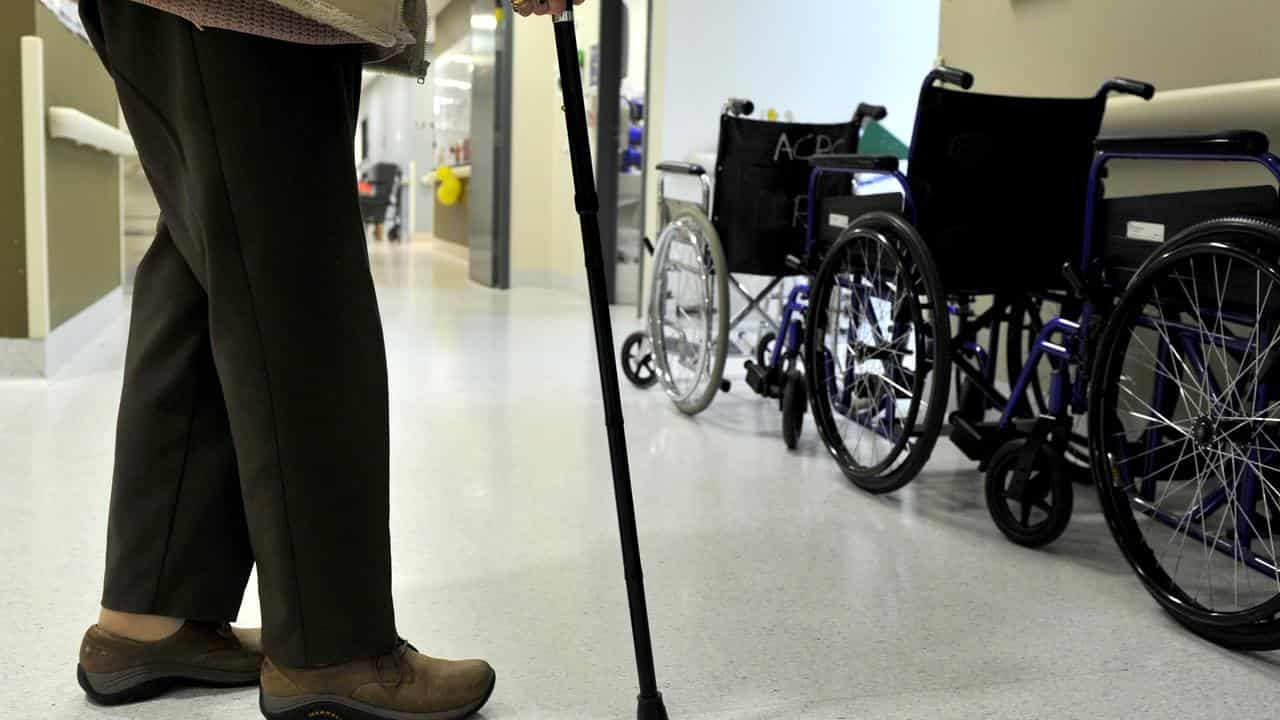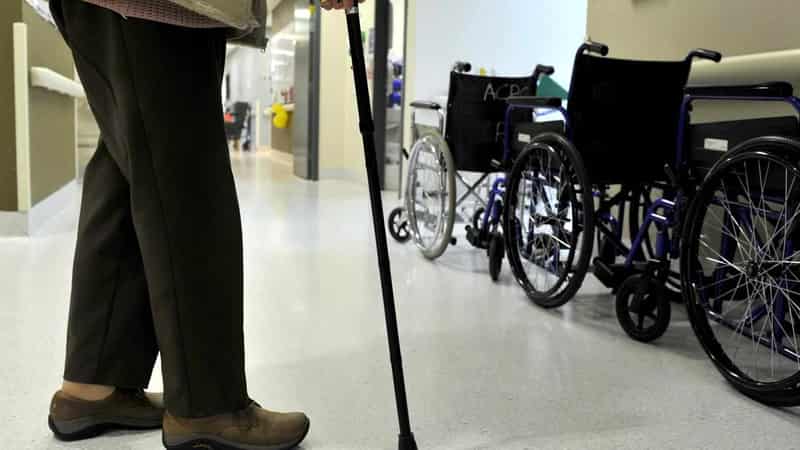
A 72-year-old woman with a disability was left unsupervised outside a Tasmanian supported living facility at night in the middle of winter before a fatal fall.
Valma Ann Tweedie suffered a fractured spine in the incident at the Desmond Wood home on July 14, 2021 and it was not diagnosed for two weeks.
She died on August 22, 2021 in hospital after her condition deteriorated and she was placed into palliative care.
Coroner Simon Cooper found Ms Tweedie's death was a direct result of being left "completely unsupervised" outside in the cold and rain in the early hours of the morning.
Ms Tweedie, who lived with an intellectual disability and had symptoms of dementia which the facility was aware of, went outside with a care worker for a cigarette about 3.10am.
She was left alone by the worker, who went back inside to help another resident.
Ms Tweedie was found lying on her back by the worker just before 5.45am half under a tree.
Paramedics who arrived after a 5.54am triple-zero call assessed her as being hypothermic and having facial injuries.
Mr Cooper said it should not be necessary to tell anyone an elderly lady with an acquired brain injury, symptoms of dementia and mobility issues should not be left alone in such circumstances.
Mr Cooper said Ms Tweedie had a history of falls and St Michael's Association, which operates the facility, knew she had significant balance and mobility problems.
He said Ms Tweedie's post-fall treatment while in the care of the Tasmanian Health Service was suboptimal.
The day after her fall, Launceston General Hospital staff noted Ms Tweedie was "not moving her arms like she usually does".
On July 22 after returning to the hospital following facial surgery in Hobart, it was noted she had no grip strength in her hands and was exhibiting significant functional decline.
After a full neurological team review on July 28, an injury to her C4-C6 vertebrae was detected.
Her cause of death was pneumonia following cervical spine injuries.
Mr Cooper, however, said an earlier diagnosis of Ms Tweedie's spinal injury wouldn't have altered the ultimate outcome.
An analysis undertaken by the hospital identified deviations from protocols, limitations in relation to policy guidance and "environmental pressures" as potential reasons for the slow diagnosis.
Neurological observations were not fully completed as early as Ms Tweedie’s presentation at the hospital emergency department, the analysis said.
Mr Cooper urged the hospital to implement the recommendations in their analysis.
A department of health spokesman said all recommendations had been implemented, including around management of trauma cases.
Mr Cooper also recommended St Michael's Association review risk identification and fall management systems.
Association CEO Mike Thomas expressed his condolences to Ms Tweedie's family and friends.
He said St Michael's had since made a significant investment in a new incident management system and its assessment system was fully compliant with NDIS standards.
St Michael’s has also implemented a practice of providing active night supports to participants when they are temporarily housed in alternate accommodation, he said.
Ms Tweedie, who was staying at Desmond Wood temporarily, was described as an active and vibrant lady who liked cooking, gardening and animals.









